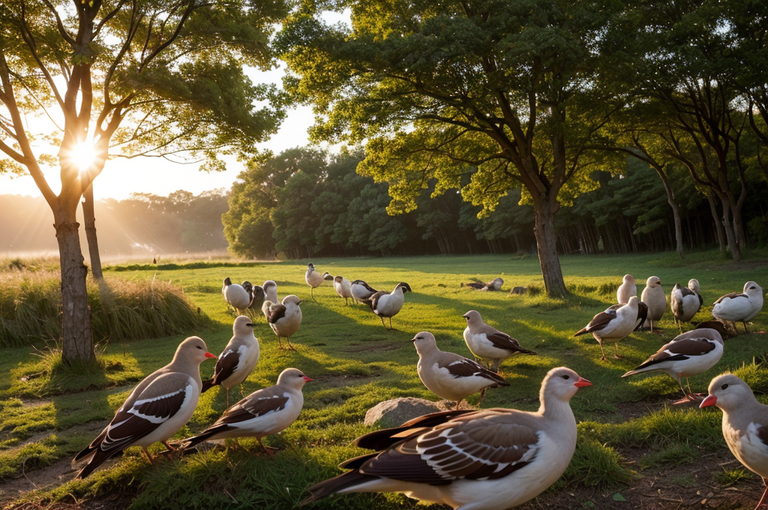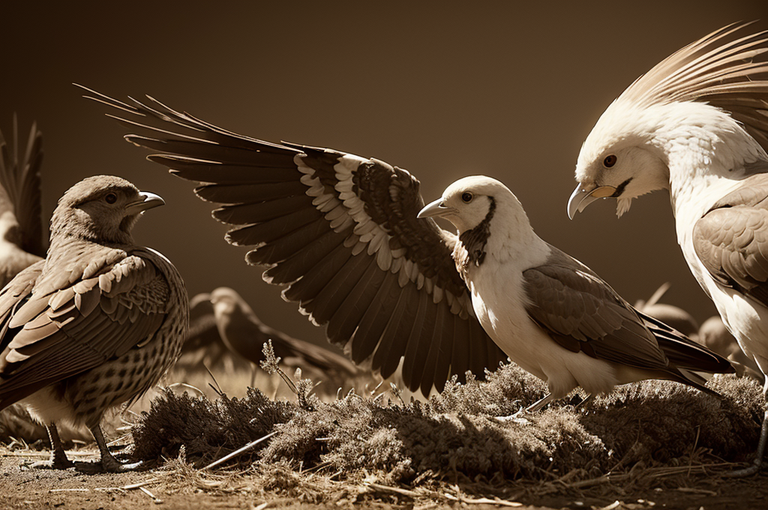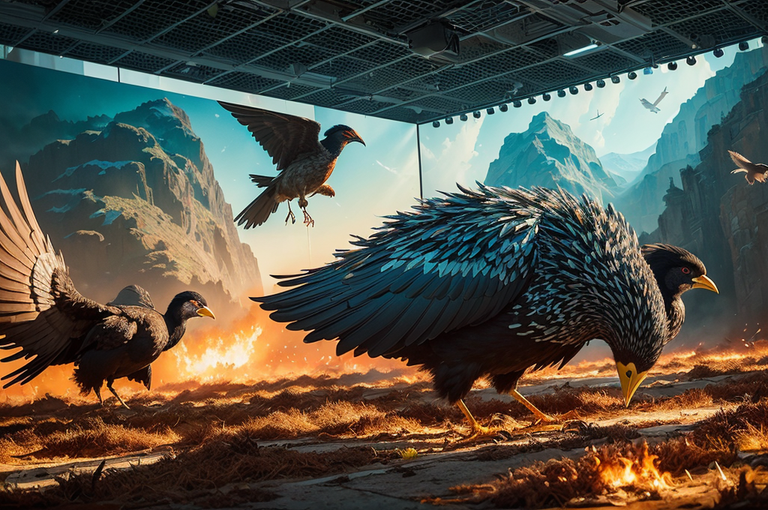Understanding the Legalities and Ethics of Owning Wild Birds: A Comparative Study of U.S. and U.K. Legislations and Guidelines

The article discusses legal and ethical issues in keeping wild birds as pets, laws governing bird ownership in the US and UK, health concerns linked to pet birds, and proper care for domesticated birds.
Legal Understanding of Keeping Wild Birds as Pets
Hovering on the edge of dawn, as I often do, listening to the orchestral chorus of our wild birds unlimited syosset, I wonder about the moral and legal implications of removing these magnificent creatures from their natural sanctuary. Far too often, people act on the impulsive desire to keep wild birds as pets without comprehending the legal constraints.
Ethical and Legal Constraints in the U.S. and UK
The concept of captivity often clashes with the wild spirit of avifauna, raising ethical questions that stretch beyond geographical boundaries. In both the U.S. and the UK, significant legal constraints discourage the encagement of wild birds. In our quest to live harmoniously with nature, these laws serve as the thread that weaves our respect for avian sovereignty into the social fabric.
Legal Ownership Based on Species
This respect is further nuanced by the concept of legal ownership which hovers, much like a heron over a pond, dependant on the species of bird in question. Some birds, like the humble pigeon or the urban crow, can indeed be kept as pets albeit with the right care and investment. However, for other species, especially raptors and migratory birds, legal possession is akin to grabbing an illusive sparrow on a windy day.
Exceptions to Capturing and Caring for Wild Birds
Laws, like some of the older trees I’ve quietly examined and admired, can have complex twists and turns. A handful of exceptions allow the capture and care of wild birds. These typically apply to endangered species for the purpose of conservation or public health and safety scenarios. Yet, even these exceptions bear the stern reminder that these creatures belong in the wild, in the early chirps of dawn, rather than confined cages.
The essence of it all, as I’ve come to realize in my dawn twilights with nature, is respecting the unwritten law of the wild. Understanding and appreciating the complex legal contexts around bird ownership helps ensure our feathery companions continue to grace the skies with their captivating presence. There lies the value and beauty of their wild freedom, a freedom I hope we can all appreciate and protect.

Caring for Injured or Sick Wild Birds
Recognizing the crucial roles of local wildlife conservation agencies and vets in handling injured or sick wild birds is a step in the right direction. These birds often require specialized care, which the experts at places like wild birds unlimited summerville shower upon them diligently. They also propound the importance of passing on this responsibility to animal healthcare professionals, bird rescues, or experienced wildlife rescue groups.
Role of Local Wildlife Conservation Agencies and Vets
Conscious of the ethereal chorus of bird song that greets the dawn, wildlife conservation agencies and vets play an indispensable role in the guardianship of our avian friends. Armed with the necessary permits and extensive knowledge, they handle and rehabilitize each case, witness to the vulnerability of these enchanting creatures.
Process of Handing them over to Rescue Groups
When one stumbles upon an injured bird, the right thing to do is to reach out to rescue groups for professional assistance. They conscientiously preserve the elaborate tapestry of avian life that fills our skies. Each bird to them isn’t just another case but a bewitching story, unfolding a bewitching parable of wild resilience, promising a renewed flight.
Regulations related to Handling Sick or Injured Birds
Remember, capturing or handling sick or injured birds is discouraged and also, duly regulated by law. Direct involvement may jeopardize the safety of both the individual and the bird. Let’s respect the intricate symphony of nature and entrust the care of these winged beings to the experts who understand the nuances of their survival and recovery.

Illegal Practices and Ethical Considerations
Whenever I set foot outside my home in wild birds unlimited dover nh, I often appreciate the serenity that wild birds create in the natural world. Conversely, the sight of these winged treasures being captured for profit fills me with dread. This illegal and unethical practice greatly impacts the balance of our ecosystems. The song in the air diminishes, replaced by an eerie silence.
Disadvantages of buying birds from illegal breeders
It’s worth noting that not all breeders share the love of avifauna that we fervently nurture. Some, I indignantly reveal, are engaged in illicit activities driven by personal gain. Patronizing such unprincipled figures only fuels their wrongdoing while compromising the health of the birds, due to poor breeding environments and practices.
Release of non-native birds into the wild
Another concern resides in the mistaken belief that releasing non native birds into the wild is a liberating act. In reality, it’s far from advisable, since these exotic strangers may disrupt the balance of our already fragile ecosystems. All in all, we prefer our birds to grace the sky and nest in the trees, wild and unrestricted, to feed our curiosity and conservation efforts.
By shedding light on these perennial concerns, we ensure the feathered friends’ enchanting chorus greets our mornings and lulks us into twilight. We owe it to the birds and to ourselves, to keep our collective coexistence natural, harmonious, and, above all, ethical.

Health Concerns of Keeping Birds as Pets
Birds are fascinating creatures, sources of delight worthy of wild birds unlimited warwick ri, but keeping them as pets raises certain health concerns.
Risks of Diseases from Birds
Denizens of the air, they carry with them a risk of disease. Their swift flight, enviable to any adventurer, can sometimes bear with it germs that are harmful to humans. Never thought I’d long for a bird’s world to be a bit less wild!
Importance of hygiene after interaction
Interacting with these winged marvels bestows not just wonder, but the necessity of maintaining stringent hygiene. These hygiene rituals are your key to enjoy the enigma of these creatures without the threat of sickness. A thorough cleanse after our avian rendezvous can keep the unwanted souvenir of disease at bay.
USDA regulations concerning avian influenza
With the vast knowledge we’ve accumulated, we’re becoming better guardians of our own health when sharing our homes with our feathery friends. Kudos to the USDA for implementing a 30 day quarantine protocol for all birds entering the country, save those from Canada. A crucial step in preventing the spread of avian influenza, showing we do care, not just for our health, but for theirs too.
As bird enthusiasts, it is our duty to balance the joy of observing their magical world with the safety and well being of both. In our pursuit of avian truths, keeping informed about these health concerns is vital, ensuring we can enjoy the company of our feathered friends while staying healthy. Trust me, our wings, however metaphorical, can take us on many an adventure, and knowledge is the wind beneath them!
Adoption and Care for Legal Pet Birds
As an avid bird enthusiast, nothing mesmerizes me more than the grace and beauty of wild birds. Their call, an ethereal song that stirs the soul. Their flight, a balletic performance that leaves me spellbound. But, bringing a bird into your home is not a fairy tale; it entails tangible responsibilities.
Choosing a reputable breeder for adoption
Indeed, pet birds should originate from a reputable breeder, much like Wild Birds Unlimited Summerville or Wild Birds Unlimited Syosset. A flawless blend of love for avians and professional expertise are their primary characteristics. Their contributions support the health and compatibility of these feathered critters in captivity. When I say this, picture a misty dawn break with the tranquil notes of a songbird rather than a default Twitter notification chirp.
Research needed on bird care
Your next step requires meticulous research to understand the specifics of bird care. Reflect on this as you would analyze the intricate twirls and dives of a swallow in flight. This understanding ensures their wellbeing, nourishing their lives as a handful of sunflower seeds would nourish a busy sparrow at Wild Birds Unlimited Warwick RI.
Consideration of life span and care requirements
My last point gently glides onto the aspects of lifespan and care requirements of your potential feathered companion. Picture the majestic eagles of Alaska aging like the finest whiskey, their lifespans soaring high as their flights. Self realization of these can make the difference akin to the one between Wild Birds Unlimited Dover NH and a local bird market.
Pulling all the fibers together, adopting a bird can be both an enriching and challenging experience. A venture requiring careful consideration, thorough research, and an enduring commitment. Oh, and never lose sight of the fact that the magic of the wild should also resonate within our homes, with or without the presence of a pet bird.


